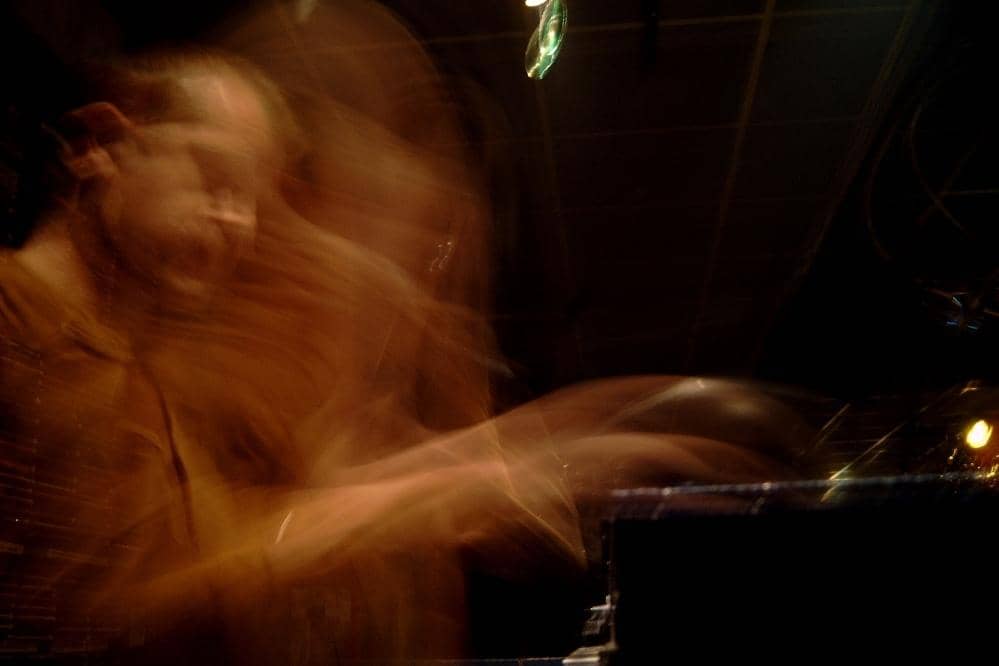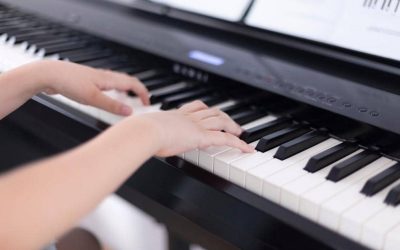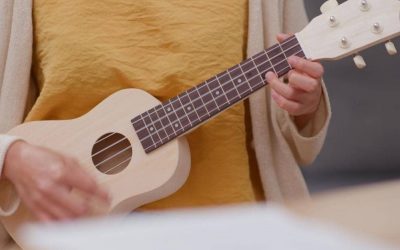Take the most passionate piano performance and watch it again while the volume is turned all the way down and it will immediately go from something mesmerizing to a bit weird. Pianists often accompany their music with physical contortions and head movements. Why is that? Is it something that happens on its own without any explanation or is there something more fundamental that causes pianists to exhibit this? Let’s us find out.
Why Do Pianists Move Their Head?
When listening to a favorite piece of music what is the one thing that most people instinctively resort to? They start swaying to the music and use some part or the entire body to rhythmically move to the music. Most commonly, the hands and the feet are used for this.
A pianist who is performing usually has both hands and sometimes both feet engaged. They also have to maintain a certain posture that restricts the range of motion in their legs. This leaves the head as the ideal body part that can sway to the music without affecting the performance. It also looks more professional while also giving off the impression that the pianist is enjoying his own performance in a somewhat restrained classy manner.
What Causes Some Of The More Exaggerated Expressions?
Pianists’ expressions during a performance aren’t just limited to subtle head movements. It can sometimes be a lot more animated and there can be multiple reasons for this as explored below.
Emotional Connection
While it takes years of dedication and practice for a pianist to become proficient enough to woo an audience, during the time when the actual performance is taking place, one more ingredient is needed and that is a passionate emotional connection to the music itself. It is what adds life and meaning to the music. It is the secret spice that transforms the musical notes into something that the audience can resonate with. This connection is so primeval and visceral that it can manifest itself in involuntary facial expressions and body movements that in another setting would be mistaken for something totally different.
Concentration
Another hallmark of all great musicians is that they could be on the biggest stage surrounded by thousands of people and the atmosphere could be electric but the musician and his/her instrument are oblivious to all of it. Pianists could not care any less for their surroundings as their entire concentration is on the performance. This means that everything else becomes secondary including their expressions and their bodily movements. While these expressions can seem silly on their own, in the context of the performance, it just works and, in many cases, can even enhance the show.
Related Article How Do You Calm Down Before A Piano Recital?
Enjoyment
This is what truly separates the good performances from the great ones. If you have ever been to a memorable performance, it is because the pianist is enjoying the music more than anyone else present and what do people do when they are experiencing unbridled enjoyment? They show it with some over-the-top facial expressions and body movement and that is exactly what a pianist does when they are enjoying their own performance. This is also a great indicator of when a pianist is at his or her best. Just watch the greatest live performances ever a bit more closely to see how this isn’t something new.
Exertion
There is a very common misconception that stage musicians lead a cushy life and that their profession does not involve any physical exertion. In reality, the opposite is true. Most stages are actually very uncomfortable and add to that all the stresses of being in front of an entire group of people whose gazes are fixed on you. Then comes the actual physicality of playing the piano for long periods of time and it is actually a physically demanding endeavor. The hands and especially the finger joints can become sore and part of the physical expressions that you see could just be a more stylized version of wincing.
It Is Part Of The Show
While the music itself is the most important part of any piano performance, a bit of showmanship is sometimes needed to take things to the next level. This is the reason musical theatres look the way they do. After all, it is a show and the pianist can sometimes use their movements to enhance their performance and make it a show worth remembering. They can use it to accentuate the ebbs and flows of the musical piece. It often does not take a lot of extra effort as they just have to give in to the urge to express themselves through their movements and in some cases just spice it up by slightly exaggerating what comes naturally.
They Just Don’t Care
In most impromptu situations when someone’s favorite piece of music comes up, an inevitable urge follows to move to the tune. Most people restraint themselves from giving in to these urges. This is usually because of the need to behave properly in public. An accomplished pianist may not feel the need to do so and can just flow with whatever feeling comes naturally to them during a performance. Pianists who don’t care what their audience thinks of their facial expressions or the way they move their head and body and instead are transfixed by their music belong in the group of elite musicians who have the license to make these expressions and movements no matter how weird they are.
Are Weird Faces A Mark Of A Great Pianist?
All of these explanations can make it seem like the weirder the face, the more accomplished the pianist is. While this is usually the case, there can be instances when an inexperienced pianist can try to emulate these expressions. As these don’t come naturally, they can actually ruin their performance. However, if the music is top-notch and in the context of the performance, the weirdness stops being weird, the pianist in question is the real deal.
Final Thoughts!
Pianists like all musicians should be defined by their music. However, music is something that is so fundamental to what makes us all human beings that it incites certain reactions that can often be involuntary in nature. This is truer in the case of pianists as they are living the music they are playing and more often than not, they cannot hold themselves back. What is great is that it adds an element of drama and panache to the performance. So, the next time you see a pianist contort his face, head, and body in a weird manner while performing and it somehow just makes everything better, understand that you are witnessing something spectacular.






